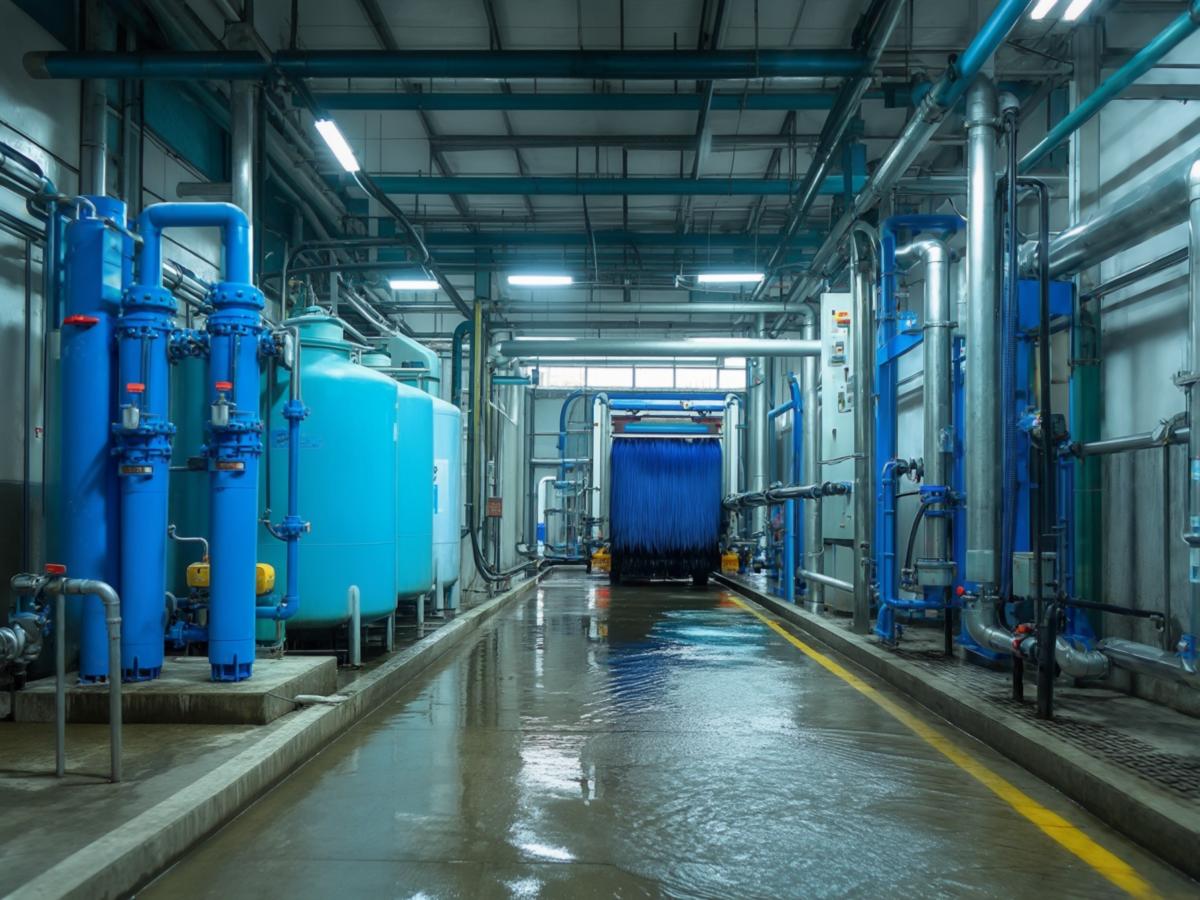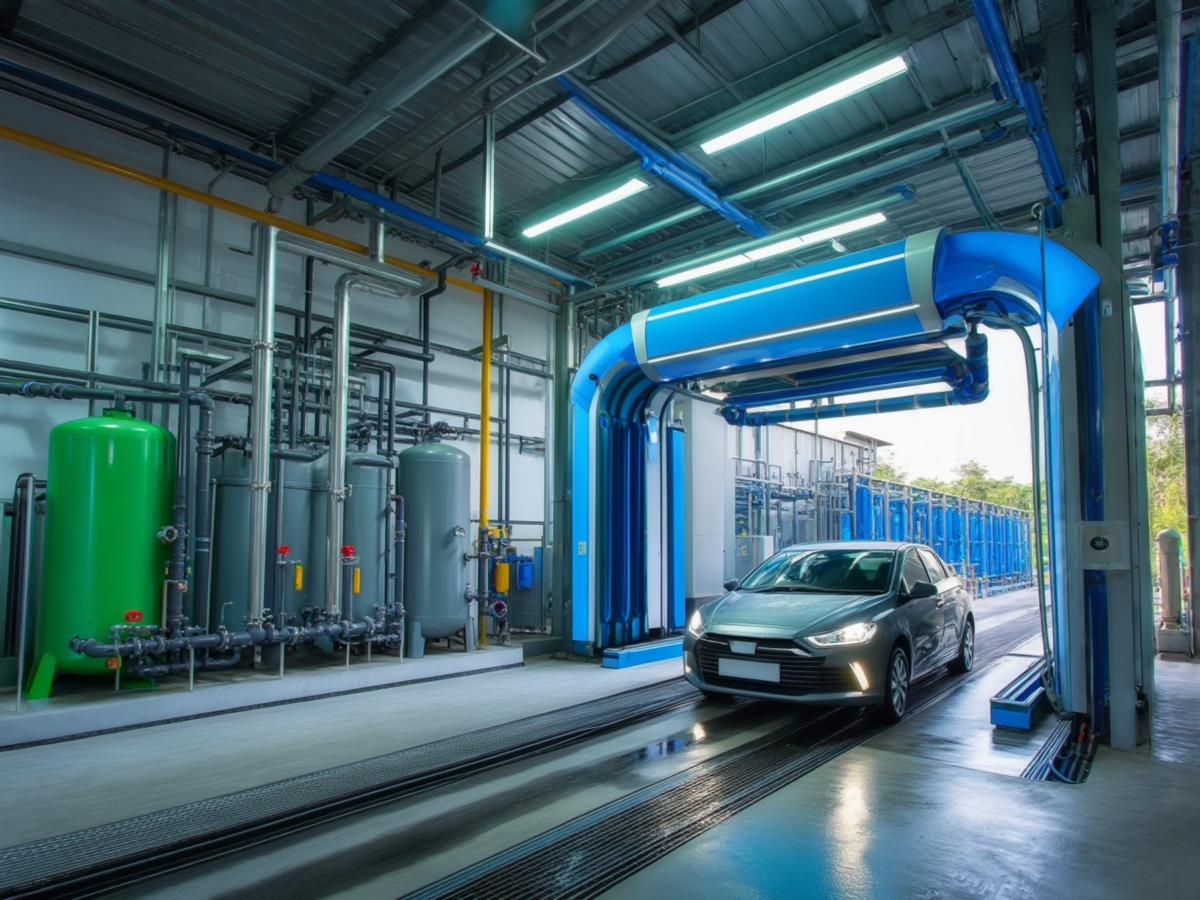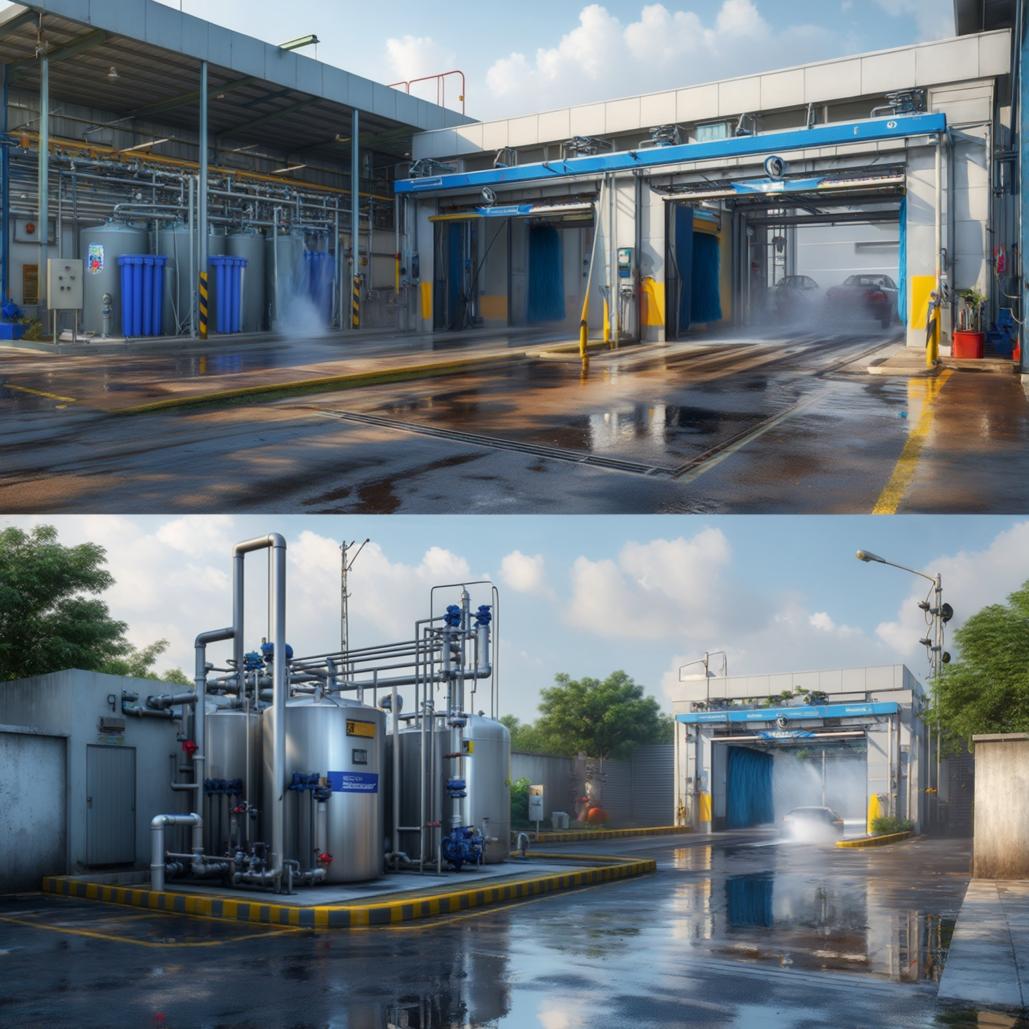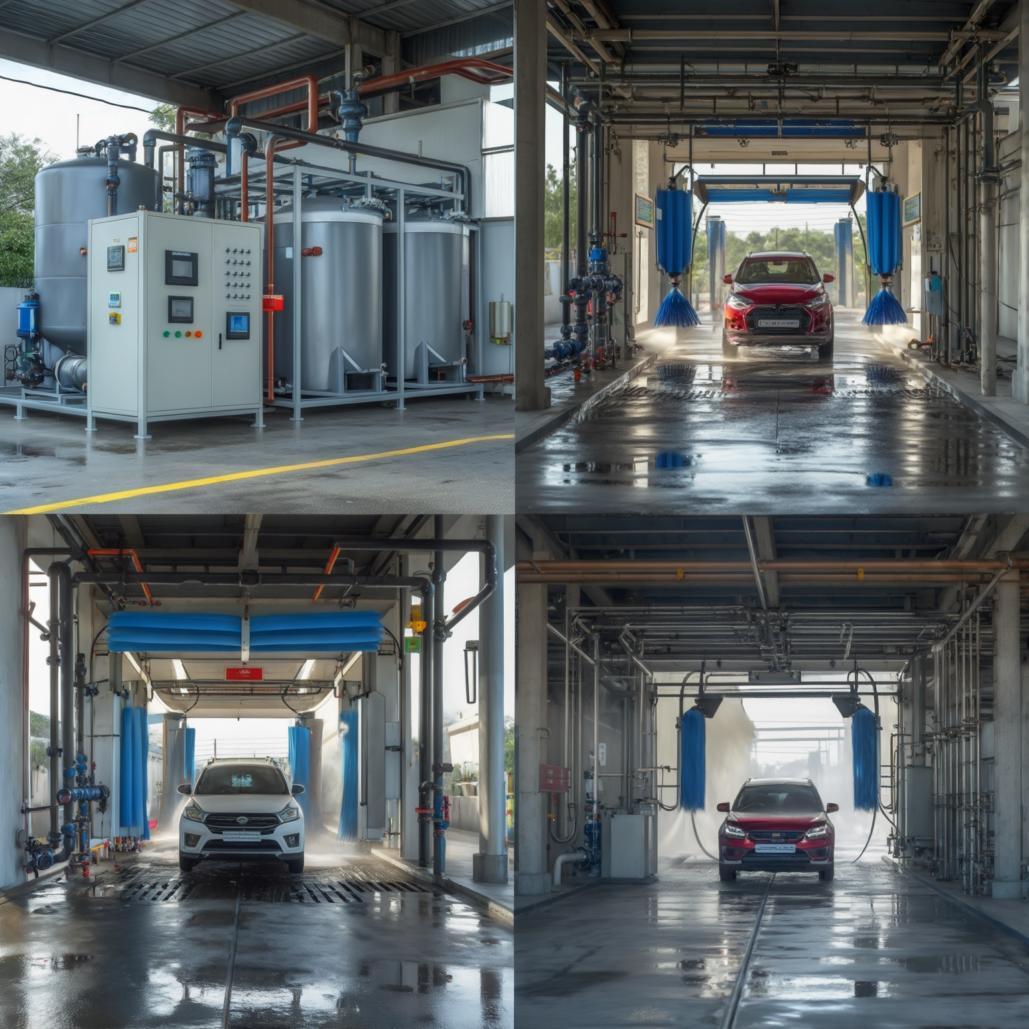
Overcoming Overloading and Capacity Challenges in Hospital STPs
Discover how Varuna’s smart energy-saving sewage treatment systems help hospitals reduce operational costs and improve sustainability.
Introduction
Wastewater management in the healthcare industry is not only an operational requirement—it is a regulatory requirement. Hospitals produce a vast range of effluents with residues of medicines, pathogens, chemicals, and organic wastes, rendering hospital sewage among the most difficult to treat. Yet, numerous hospitals all over India and the world still face challenges in complying with the tight environmental norms. Most of these failures are traced to antiquated sewage treatment plants (STPs), minimal real-time monitoring, and improper design without consideration for variations in peak loads.
In this in-depth article, we discuss the regulatory environment for hospital STPs, the consequences of non-compliance, and how Varuna's cutting-edge STP systems and monitoring technologies help healthcare facilities comply and continue to adhere to environmental standards efficiently.
The Regulatory Environment for Hospital Wastewater Treatment
The Central Pollution Control Board (CPCB) and individual State Pollution Control Boards (SPCBs) have outlined distinct effluent discharge standards for hospitals. Essential quality parameters are:
-
Biochemical Oxygen Demand (BOD) < 10 mg/L
-
Chemical Oxygen Demand (COD) < 50 mg/L
-
Total Suspended Solids (TSS) < 20 mg/L
-
Fecal Coliforms < 400 MPN/100 ml
-
pH between 6.5 to 8.5
-
Heavy Metals and Pharmaceutical Residues to be maintained within trace levels as specified
Additionally, for hospitals with over 100 beds, it is required to have a functional STP with complete adherence to these limits.
Non-adherence can lead to:
-
Large fines under the Water (Prevention & Control of Pollution) Act
-
Closure or license revocations
-
Suspension of NABH accreditation
-
Adverse publicity and reputation loss
Root Causes for Noncompliance
Compliance still persists as an issue despite such tough legislation owing to various operational and infrastructural causes:
-
Obsolete STP Technologies – Traditional treatment practices such as ASP and trickling filters hardly are able to deal with the intricate hospital effluent of the current times.
-
Lack of Monitoring – The majority of systems have no real-time sensors and analytics, so it is difficult to identify deviations.
-
Undersized STPs – Plants are generally designed for average loads, rather than peak surges because of emergencies or expanded occupancy.
-
Improper Operation and Maintenance – Lack of trained operators and no periodic calibration result in system inefficiencies.
-
Data Gaps – Manual reporting allows space for errors and poor traceability during audits.
The outcome? Hospitals find it hard to achieve stable performance, meet effluent standards, and remain compliant during audits.
Varuna's Compliance-Centric STP Solutions
We at Varuna have developed wastewater treatment solutions specifically designed to achieve and surpass compliance requirements. For new hospital projects or STP upgrades, we integrate automation, high-performance processes, and smart monitoring.
1. High-Efficiency Treatment Technologies
We substitute old technology with advanced processes like:
-
Membrane Bioreactor (MBR): Removes bacteria and micropollutants to tertiary standards
-
Moving Bed Biofilm Reactor (MBBR): Efficaciously handles organic loads
-
Advanced Oxidation Processes (AOPs): Destroy pharmaceutical residues and emerging pollutants
These technologies are designed to maintain parameters below CPCB discharge limits, thereby guaranteeing safe discharge or water reuse.
2. Real-Time Monitoring and Smart Controls
Our STPs are equipped with IoT-enabled monitoring systems which offer:
-
Real-time dashboard of main parameters (BOD, COD, TSS, pH, Flow rate)
-
Auto alerts for deviation or failure
-
Audit and inspection logs as historical records
-
Remote access for centralized management
This provides utmost transparency, proactive maintenance, and regulatory compliance at all times.
3. Custom Design and Future-Proofing
Varuna performs a comprehensive water audit to know the definite load conditions and designs the STP to manage peak loads with 20–30% additional buffer. Our designs comply with:
-
CPCB and BIS norms
-
Biomedical Waste Management Rules, 2016
-
Hospital-specific zoning and spatial limitations
4. Certification and Reporting Support
We assist our clients in maintaining NABH and ISO certifications by offering:
-
Electronic data reports for submission against compliance
-
SOPs for O&M and emergency readiness
-
Monthly and quarterly audit templates
This lightens the load of the hospital team while guaranteeing 100% readiness during pollution board audits.
Benefits of Ensuring Regulatory Compliance
By being compliant with effluent standards through Varuna's systems, hospitals can avail multiple benefits:
-
Avoid fines and lawsuits
-
Attain long-term operational stability
-
Facilitate water recycling and lower utility costs
-
Enhance public and environmental reputation
-
Attract green building certifications such as IGBC or GRIHA
Above all, it enables hospitals to discharge their responsibility of care towards public health and the environment.
Case Study: 300-Bed Super Specialty Hospital in Hyderabad
A leading Hyderabad hospital received regular notices due to BOD and TSS non-conformity. Their previous system consisted of an Activated Sludge Process without sensors. Varuna replaced it with a 150 KLD MBR-based STP with online monitoring.
Results:
-
Consistent BOD <5 mg/L
-
Recycled water utilized for flushing and gardens
-
Real-time dashboard integrated with SPCB portal
-
Zero audit findings since commissioning
The project is now a green healthcare infrastructure benchmark.
Ongoing Maintenance and AMC Support
Compliance is not a once-for-all achievement. That's why Varuna provides Annual Maintenance Contracts (AMC) covering:
-
Regular performance audits
-
Remote diagnostics and alerting
-
Emergency service visits
-
Consumables and spares management
-
Operator training and certification
We keep you compliant 365 days a year.
Why Select Varuna for Regulatory-Ready STPs?
-
In-house R&D in hospital effluent solutions
-
100+ successful healthcare STP installations
-
NABL-calibrated testing and validation processes
-
Pan-India service network
-
Scalable and compact designs for metro hospitals
With Varuna, hospitals no longer have to fear inspections, fines, or environmental degradation.
Conclusion
The need for hospitals to comply with environmental standards is growing. Legacy STPs without monitoring or high-end treatment are no longer sufficient. By embracing Varuna's regulatory-compliant STP solutions, hospitals can guarantee safe, transparent, and environmentally friendly wastewater management.
Whether constructing a new plant or refurbishing an existing one, select a partner that has compliance, sustainability, and performance as top priorities.
Get expert advice for your hospital STP today:
📞 +91 9731333092
🌐 www.varunaeco.com
📧 sendtovaruna@gmail.com




